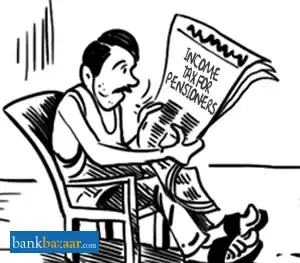Income Tax for Pensioners 2026
When you get a certain amount of money as pension from your employer, that amount of money becomes your salary after retirement and therefore it becomes taxable according to the provisions of the Income Tax Act, 1961.
A pension is a monthly income that is paid out to retired individuals after they have retired from their place of employment. The payment modes for pensions differ based on the choice of the recipient. In some cases, former employees receive their pension in a lump-sum amount—commuted pension—or receive their pension on a monthly basis—uncommuted pension.
What are the Taxation Rules for Pensions?
According to the rules of taxation, an uncommuted pension is viewed as a salary under the Income Tax Act, 1961, and is therefore taxable. However, Section 89(1) has a number of deductions on salary income that is provided to pensioners who receive their salary through nationalised banks. Similarly, banks make tax rebate adjustments under Section 88 and 88B when TDS is applied.
Tax Forms for Pensioners
The Indian government has 4 types of income tax forms that are relevant to individuals. Of these 4 forms, ITR 1 and ITR 2 are those that are applicable to pensioners.

ITR-1 OR SAHAJ
The ITR-1 form is also known as the Sahaj Form and is applicable to individuals who receive an income of up to Rs.50 lakh from the following modes:
- Income from a salary
- Income from a pension
- Income from a house property
- Income from other sources
ITR 2 Form
The ITR-2 form is applicable to individuals who are not eligible to file taxes under the requirements of the ITR-1 form. The ITR-2 form is applicable to individuals who receive income from the following modes:
- Income from a salary
- Income from a pension
- Income from a house property
- Income from other sources
- Income from capital gains
- Foreign income/assets
- Agricultural income above Rs.5,000
Eligibility Criteria for ITR Exemption
Senior citizens will be able eligible for ITR exemption if they meet the below mentioned criteria:
- Age Requirement: The senior citizen should be 75 years or older during the fiscal year.
- Residency: Must be an Indian resident.
- Income Sources:
- Should have pension income.
- May also have interest income from the same bank where the pension is received.
- No other sources of income are permitted.
- Bank Account: The pension and interest income should be received in a single account with a specified bank notified by the government.
- Declaration: The senior citizen must submit a declaration to the specified bank, including relevant information for tax deduction purposes.

Disclaimer
Credit Card:
Credit Score:
Personal Loan:
Home Loan:
Fixed Deposit:
Copyright © 2026 BankBazaar.com.